





Colorado Criminal Appeals – When You Lose In Colorado County Court
By H. Michael Steinberg Colorado Criminal Defense Lawyer
Colorado Criminal Appeals – When You Lose In Colorado County Court – The decision to appeal an adverse result in a Colorado County Court criminal case may seem “appealing” (forgive) upon first impulse – but understanding the procedures that are required to actually “take” an appeal is critical to making a good decision.
Taking An Appeal From A Colorado Criminal County Court Case
Navigating the process appealing a Colorado Criminal County Court case involves a number of procedures and deadlines that must be followed to the letter.
As always – start with the law – what follows is the most relevant statute as of 2016.
Rule 37. Appeals from County Court.
(a) Filing Notice of Appeal and Docketing Appeal. The district attorney may appeal a question of law, and the defendant may appeal a judgment of the county court in a criminal action under simplified procedure to the district court of the county. To appeal the appellant shall, within 35 days after the date of entry of the judgment or the denial of posttrial motions, whichever is later, file notice of appeal in the county court, post such advance costs as may be required for the preparation of the record and serve a copy of the notice of appeal upon the appellee. He shall also, within such 35 days, docket the appeal in the district court and pay the docket fee. No motion for new trial or in arrest of judgment shall be required as a prerequisite to an appeal, but such motions if filed shall be pursuant to Rule 33(b) of these Rules.
(b) Contents of Notice of Appeal and Designation of Record. The notice of appeal shall state with particularity the alleged errors of the county court or other grounds relied upon for the appeal, and shall include a stipulation or designation of the evidence and other proceedings which the appellant desires to have included in the record certified to the district court. If the appellant intends to urge upon appeal that the judgment or a finding or conclusion is unsupported by the evidence or is contrary to the evidence, the appellant shall include in the record a transcript of all evidence relevant to such finding or conclusion.
The appellee shall have 14 days after service upon him of the notice of appeal to file with the clerk of the county court and serve upon the appellant a designation of any additional parts of the transcript or record which he deems necessary. The advance cost of preparing the additional record shall be posted by the appellant with the clerk of the county court within 7 days after service upon him of the appellee’s designation, or the appeal will be dismissed. If the district court finds that any part of the additional record designated by the appellee was unessential to a complete understanding of the questions raised by the appeal, it shall order the appellee to reimburse the appellant for the cost advanced for the preparation of such part without regard to the outcome of the appeal.
(c) Contents of Record on Appeal. Upon the filing of a notice of appeal and upon the posting of any advance costs by the appellant, as are required for the preparation of a record, unless the appellant is granted leave to proceed as an indigent, the clerk of the county court shall prepare and issue as soon as possible a record of the proceedings in the county court, including the summons and complaint or warrant, the separate complaint if any has been issued, and the judgment.
The record shall also include a transcription or a joint stipulation of such part of the actual evidence and other proceedings as the parties designate. If the proceedings have been recorded electronically, the transcription of designated evidence and proceedings shall be prepared in the office of the clerk of the court, either by him or her or under his or her supervision, within 42 days after the filing of the notice of appeal or within such additional time as may be granted by the county court.
The clerk shall notify in writing the opposing parties of the completion of the record, and such parties shall have 14 days within which to file objections. If none are received, the record shall be certified forthwith by the clerk. If objections are made, the parties shall be called for hearing and the objections settled by the county judge and the record then certified.
(d) Filing of Record. When the record has been duly certified and any additional fees therefor paid, it shall be filed with the clerk of the district court by the clerk of the county court, and the opposing parties shall be notified by the clerk of the county court of such filing.
(e) Briefs. A written brief setting out matters relied upon as constituting error and outlining any arguments to be made shall be filed in the district court by the appellant within 21 days after certification of the record. A copy of the appellant’s brief shall be served upon the appellee. The appellee may file an answering brief within 21 days after such service. A reply brief may be filed within 14 days after service of the answering brief. In the discretion of the district court, the time for filing briefs and answers may be extended.
(f) Stay of Execution. Pending the docketing of the appeal, a stay of execution shall be granted by the county court upon request. If a sentence of imprisonment has been imposed, the defendant may be required to post bail, and if a fine and costs have been imposed, a deposit of the amount thereof may be required by the county court. Upon a request for stay of execution made any time after the docketing of the appeal, such action may be taken by the district court. Stays of execution granted by the county court or district court and, with the written consent of the sureties if any, bonds posted with such courts shall remain in effect until after final disposition of the appeal, unless modified by the district court.
(g) Trials de Novo; Penalty Not Increased. If for any reason an adequate record cannot be certified to the district court the case shall be tried de novo in that court. No action on appeal shall result in an increase in penalty.
(h) Judgment – How Enforced. Unless there is further review by the Supreme Court upon writ of certiorari pursuant to the rules of such court, after final disposition of the appeal the judgment on appeal entered by the district court shall be certified to the county court for action as directed by the district court, except in cases tried de novo by the district court or in cases in which the district court modifies the county court judgment, and in such cases, the judgment on appeal shall be that of the district court and so enforceable.
(i) Appeals to Superior Court. In counties in which a superior court has been established, appeals from the county court shall be taken to the superior court rather than the district court. All of the provisions of this section governing appeals from the county court to the district court are applicable when the appeal is taken to the superior court, and the term “district court” as used in this section shall be understood to include the superior court.
A Summary Analysis Of The Key Issues Of Taking A Colorado County Court Appeal
First, criminal defendants have the right to appeal if there is a final judgment of conviction – that means a criminal case has proceeded to sentencing. What may be confusing is that an appeal of a Colorado Criminal Proceeding is a civil – not a criminal case.
The Rules: Filing Notice and Docketing the Appeal
Pursuant to Colorado Crim.P. 37(a), and most critically, an appellant (the person filing the appeal) has thirty-five days to appeal a judgment of the county court in a criminal action.
The thirty-five day appeal period begins on the date a final judgment is entered.
What Is A FINAL Judgment?
A criminal judgment is final when the Trial Court has recited:
(1) the plea;
(2) the verdict or findings;
(3) the sentence;
(4) the amount of pre-sentence confinement; and
(5) the costs, if any are assessed against the defendant.
The thirty-five day period for filing an appeal does not begin to run until the last step in these procedures has been completed.
Within the thirty-five day filing period, the “Appellant” must:
(1) file a notice of appeal with the county court;
(2) post advance costs for preparation of the record with the county court;
(3) serve a copy of the notice of appeal on the appellee (the prosecutor);
(4) docket the appeal with the district court; and
(5) pay the docket fee to the district court.
If the Appellant does not at least docket the appeal – this error is jurisdictional and the appeal will be DISMISSED. Again – the failure to at least timely file the Notice of Appeal and Designation of Record with the district court is almost always fatal to the appeal.
While there is a mechanism if this deadline is not met – it is tough to work around – better to meet the deadline.
But If You MISS The Deadline – One Possibility – Colorado Appellate Rule (CAR) 26(b)
Under CAR 26(b), the Appellate Court may:
(1) permit an appeal to be filed after the initial time period,
(2) approve a party’s motion to enlarge the time prescribed by the rules, or
(3) permit an act to be done after the expiration of the prescribed time.
The Appellant must show good cause and the determination of good cause depends on the particular facts of each case, and is made by the Appellate Court after assessing the totality of the circumstances.
A late filing might be found to be excusable, after the Appellate Court weighs factors such as:
(1) the potential prejudice the People may suffer from late filing;
(2) the interests of judicial economy; and
(3) the propriety of requiring the Defendant to pursue other remedies.
If The 35 Day Deadline Is Met – Some Important “Procedural” Hoops To Jump Through
The Cost Of Taking An Appeal In Colorado County Criminal Court Cases
A non-indigent Appellant must pay $70 to docket an appeal.
This fee is to be paid to the district court.
Other costs that must be “advanced” include the costs for preparation of the record of the proceedings in the County Court. An Appellant is required to pay to the county court in advance the costs for preparation of the record.
These costs are CONSIDERABLE and include a $20 certification fee, as well as a $0.75 per-page fee for copies of documents on file ($1.50 if double-sided), and a $0.25 per-page fee for copies of documents not on file ($0.50 if double-sided).
The Appellant is also required to pay advance costs for preparing any additional designations to the record made by the appellee “within five days after service upon him of the Appellee’s designation, or the appeal will be dismissed.”
Appealing a case is expensive and risky – and the failure to comply – if the Court finds you are capable of paying the costs and fees noted above – can result in dismissal of the appeal.
Contents of Notice of Appeal and Designation of Record
The NOTICE OF APPEAL is very specific in form and must:
(1) state with particularity the issues raised on appeal and
(2) include a designation of record.
Crim .P. 37(b) states in relevant part:
“The notice of appeal shall state with particularity the alleged errors of the county court or other grounds relied upon for the appeal.”
This “particularity” requirement is designed to narrow the focus of appellate review and provide notice to the appellee and district court of the issues on appeal. While not intended to be hyper-technical, if you are handling your own appeal – you must clearly identify the issue or issues on appeal and provide a designation of record that includes all parts of the record that will allow the appellate court to resolve those issues.
Designation of Record
A district court’s appellate function is to review “the judgment of the county court based upon the county court record.”
The District Court Judge – the Judge who will decide the case – will consider only material provided in the record when reviewing a criminal appeal.
As the Appellant – you have the responsibility to ensure that a complete and accurate record is properly transmitted to the appellate court.
The designation of record should request all evidence and proceedings relevant to the issues raised on appeal. The request for transcripts of the trial or other proceedings at the County Court level must specify the date and the courtroom where the proceedings occurred.
The Stay of Execution of the Sentence In The Colorado Criminal Case Below
A stay of execution means the County Court Judge’s sentence cannot be imposed while the appeal is being “perfected” and decided by the District Court.
After sentence is imposed but before the appeal is docketed with the District Court, the stay of execution must be granted by the county court on request. But their may be a requirement to post an appeal bond to obtain that stay of execution. The bond may take the form of a “bail” requirement similar to the bail that is often posted in criminal cases for Defendants to have their freedom while a criminal case proceeds through the courts.
Also – a stay of execution also may be granted by the District Court after the appeal has been docketed and even if the lower Court did not require the posting of a bond – bail -the District Court may order a bond which”shall remain in effect until after the disposition of the appeal.”
The rule lays out the briefing schedule – and the complicated proceedings for every step of the appeal. One word of caution – these rules are complex and without representation – may be impossible to navigate for the lay person. If you intend to represent yourself in an appeal – at least consult with an experienced Colorado Criminal Appellate Lawyer first. link to the forms
Colorado Criminal Appeals – When You Lose In Colorado County Court
If you found any of the information I have provided on this web page article helpful please click my Plus+1 or the Share buttons for Twitter and Face book below so that others may also find it.
If, after reading this article, you have questions about your case and would like to consider retaining our law firm, we invite you to contact us at the Steinberg Colorado Criminal Defense Law Firm – 303-627-7777.
Never stop fighting – never stop believing in yourself and your right to due process of law. You will not be alone in court, H. Michael at your side every step of the way – advocating for justice and the best possible result in your case.
ABOUT THE AUTHOR: H. Michael Steinberg – Email The Author at [email protected] – A Denver Colorado Criminal Defense Lawyer – or call his office at 303-627-7777 during business hours – or call his cell if you cannot wait and need his immediate assistance – 720-220-2277. Attorney H. Michael Steinberg is passionate about criminal defense. His extensive knowledge and experience of Colorado Criminal Law gives him the edge you need to properly handle your case.
“A good criminal defense lawyer is someone who devotes themselves to their client’s case from beginning to end, always realizing that this case is the most important thing in that client’s life.”
 You should be careful to make a responsible choice in selecting a Colorado Criminal Defense Lawyer – and we encourage you to “vet” our firm. Over the last 40 plus years – by focusing ONLY on Colorado criminal law – H. Michael has had the necessary time to commit to the task of constantly updating himself on nearly every area of criminal law, to include Colorado criminal law and procedure and trial and courtroom practice. H. Michael works hard to get his clients the best possible results in and out of the courtroom. He has written, and continues to write, extensively on Colorado criminal law and he hopes this article helps you in some small way – Colorado Criminal Appeals – When You Lose In Colorado County Court.
You should be careful to make a responsible choice in selecting a Colorado Criminal Defense Lawyer – and we encourage you to “vet” our firm. Over the last 40 plus years – by focusing ONLY on Colorado criminal law – H. Michael has had the necessary time to commit to the task of constantly updating himself on nearly every area of criminal law, to include Colorado criminal law and procedure and trial and courtroom practice. H. Michael works hard to get his clients the best possible results in and out of the courtroom. He has written, and continues to write, extensively on Colorado criminal law and he hopes this article helps you in some small way – Colorado Criminal Appeals – When You Lose In Colorado County Court.

Other Articles of Interest:
- Colorado Criminal Law – How Do I Get A Continuance Of My Colorado Criminal Trial?
- In Colorado The Police Entered My House In A Domestic Violence Case Without A Search Warrant – The Protective Sweep
- Attacking The Investigation of Date – Acquaintance Sexual Assault – The Pretext Phone Call Part II of II
- Colorado Criminal Law – The Denial Of Bail After Trial
- Qualifications Of H. Michael Steinberg – Attorney Profile























